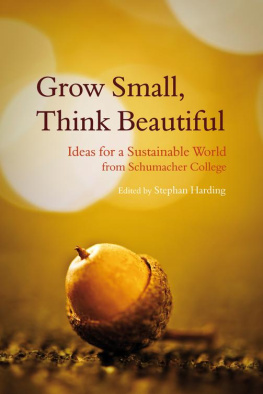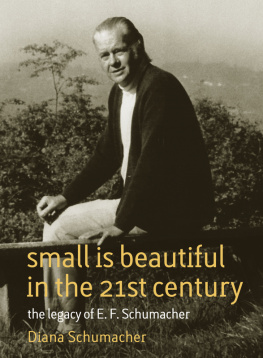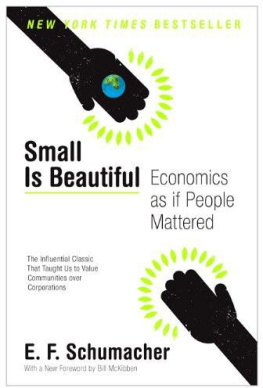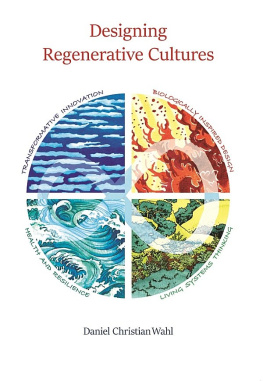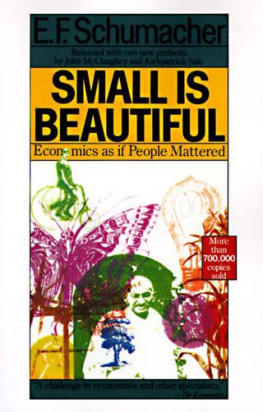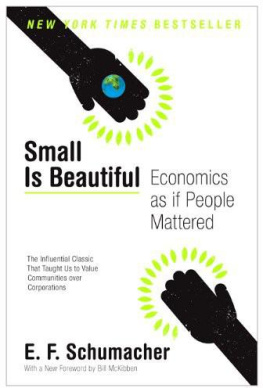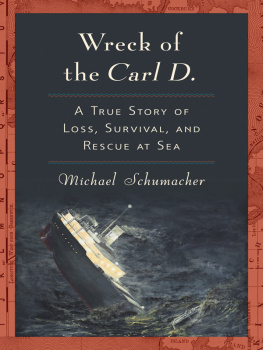This book is very much a child of Schumacher College, and so my first thanks go to the Dartington Hall Trust which created the college just over twenty years ago. With the generous support of the Trust the college has been able to provide many people from all over the world with wonderful opportunities for deep, transformative learning experiences that have strengthened their service to society and to the Earth. In particular I would like to thank Philip Franses, my colleague on the colleges MSc in Holistic Science, for his friendship and intellectual support on the journey towards wholeness that we share with our students.
A major thanks also to all the authors who wrote for the book. You have endured and survived my pestering and delivered manuscripts rich in meaning and insight. A final thanks to Christopher Moore and the team at Floris Books, all of whom have been a delight to work with.
Mark Burton is an engineer by training. He is a graduate of the MSc in Holistic Science at Schumacher College, and is currently doing his PhD at the University of Bristol on alternative banking and currency systems.
Fritjof Capra, Ph.D., physicist and systems theorist (www.fritjofcapra.net), is a founding director of the Center for Ecoliteracy in Berkeley. He is the author of several international bestsellers, including The Web of Life and The Hidden Connections. His most recent book, The Science of Leonardo, was published in paperback by Anchor Books in December 2008.
Jules Cashford read philosophy at St Andrews University and did post-graduate research in literature at Cambridge, on a Carnegie Fellowship. She is a Jungian analyst and has authored many books including The Myth of the Goddess: Evolution of an Image (with Anne Baring) and The Moon: Myth and Image (Cassell Illustrated, 2003).
Shaun Chamberlin co-founded Transition Town Kingston and authored the transition movements second book, The Transition Timeline. He has also served as an advisor to the UK Department of Energy and Climate Change and an academic peer reviewer for the Climate Policy journal, edited booklets on nuclear power and carbon rationing, and co-authored the All Party Parliamentary Group on Peak Oils 2011 report into Tradable Energy Quotas.
Richard Douthwaite worked as a government economist in the West Indies before moving to Ireland to become an economist and writer with a special interest in climate and energy issues and local economic development. He is co-founder of the Foundation for the Economics of Sustainability (FEASTA) and is a council member of Comhar, the Irish governments national sustainability council and a Fellow of the Post Carbon Institute.
Brian Goodwin studied biology at McGill University and then emigrated to the UK under a Rhodes Scholarship, studying mathematics at Oxford. He received his PhD at the University of Edinburgh and then moved to Sussex University until 1983 when he became a full professor in biology at the Open University. After his retirement he joined the faculty at Schumacher College in Devon, UK, where he was instrumental in starting the MSc in Holistic Science.
Per Ingvar Haukeland is a Norwegian researcher of rural studies at Telemark Research Institute and a teacher of ecophilosophy and deep ecology at the University College of Telemark. He has an MA from University of Oregon and a PhD in ecophilosophy, education and sustainable rural entrepreneurship from University of California at Berkeley. He has collaborated with Arne Naess over several years, e.g. the book Lifes Philosophy and Deep Joy: Into the depths of deep ecology.
Richard Heinberg is the author of ten books, including The End of Growth. He is widely regarded as one of the worlds most effective communicators of the urgent need to transition away from fossil fuels. He is currently Senior Fellow-in-Residence at Post Carbon Institute, a non-profit organisation dedicated to building more resilient, sustainable, and equitable communities.
Helena Norberg-Hodge is the founder and director of the International Society for Ecology and Culture (ISEC) and its predecessor, the Ladakh Project. She is the author of Ancient Futures: Learning from Ladakh (1992) and co-author of Bringing the Food Economy Home. Norberg-Hodges groundbreaking work in the Himalayan region of Ladakh is internationally recognised, and earned her the Right Livelihood Award.
Craig Holdrege is the founder and director of The Nature Institute in Ghent, NY, which is dedicated to research and educational activities applying phenomenological, holistic methods, including Goethean science (natureinstitute.org). He is the author of books, monographs, and articles including Beyond Biotechnology and The Giraffes Long Neck.
Gideon Kossoff is a social ecologist/social theorist whose research focuses on the relationships between humans and the natural environment and humans and the built/designed world as the foundation for a sustainable society. Gideon served as programme administrator from 1988 until 2007 for Schumachers MSc in Holistic Science.
Terry Irwin is the Head of the School of Design at Carnegie Mellon University in Pittsburgh, Pennsylvania. She was trained as a communication design and has Masters degrees in design from the Allgemeine Kunstgewerbeschule in Basel, Switzerland, and a Masters in Holistic Science from Schumacher College. She lectures widely on the topics of sustainable design and living systems.
Satish Kumar renounced the world and joined the wandering brotherhood of Jain monks when he was nine years old. As a young man he undertook an eight thousand mile peace pilgrimage, walking from India to America without any money. In 1973, he settled in England, taking an Editorship of Resurgence magazine. He is the founder of the Small School in Hartland and a co-founder of Schumacher College. He is author of several books, including No Destination, and You Are, Therefore I Am A Declaration of Dependence.
James Lovelock is the author of more than two hundred scientific papers and the originator of the Gaia Hypothesis (now Gaia Theory) about which he has written three books, most recently The Vanishing Face of Gaia. A Fellow of the Royal Society, in 2003 he was made a Companion of Honour by Her Majesty the Queen. He has received numerous prizes and awards for his contributions to science, including the Blue Planet Prize, the Edinburgh Medal and the Wollaston Medal.
Ezio Manzini has been working in the field of design for sustainability for more than two decades. Most recently, his interests have focused on social innovation. He started and coordinates, DESIS: an international network on design for social innovation and sustainability. At the Politecnico di Milano, he coordinated the Unit of Research DIS, the Doctorate in Design He is the author of several design books, including

